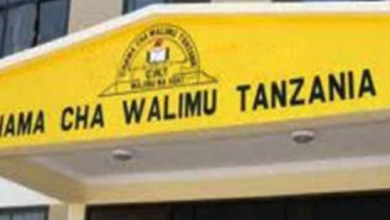Tanzania seeks to address unemployment challenges in Arusha, Manyara

ARUSHA: THE Tanzanian government has put in place robust plans to address unemployment challenges among youth, women, and other vulnerable groups, the Permanent Secretary in the Ministry of Industry and Trade, Dr. Hashil Abdallah, said today, November 17, 2025.
This includes identifying operational and non-operational industries, as well as investment opportunities in the Arusha and Manyara regions, while similar research continues in other regions.
Dr. Abdallah made the remarks today in Arusha during the launch of training for the data-collection exercise on industries in the Arusha and Manyara regions, which brought together ICT officers and Industry and Trade officers.
He explained that the main goal of the exercise is to respond to directives from President Samia Hassan Suluhu, aimed at advancing Tanzania’s industrial economy. By conducting research, the ministry is implementing the President’s instructions to create jobs, attract investment, and enable local citizens to identify opportunities to establish industries and invest across different regions using accurate industrial data.
ALSO READ: 8th Ex Leaders’ Summit: Tanzania urges joint efforts against corruption, unemployment
Meanwhile, the Director General of the Tanzania Industrial Research and Development Organization (TIRDO), Professor Mkumbukwa Mtambo, stated that through the exercise, the government has identified 23,150 large, medium, small, and micro industries in seven out of the country’s 26 regions. The objective is to attract both local and foreign investors and expand employment opportunities for youth, women, and special groups.
Once the nationwide industrial data collection is complete, the government will compile the information into the National Industrial Information Management System (NIIMS), enabling domestic and international investors to make informed investment decisions that will help boost the economy.
The exercise is being coordinated and supervised by TIRDO in collaboration with the National Bureau of Statistics and the President’s Office – Regional Administration and Local Government (Tamisemi). It serves as an essential tool for managing the industrial sector and lays the foundation for establishing a national industrial database (NIIMS), which will simplify information dissemination, policy formulation, and planning.





